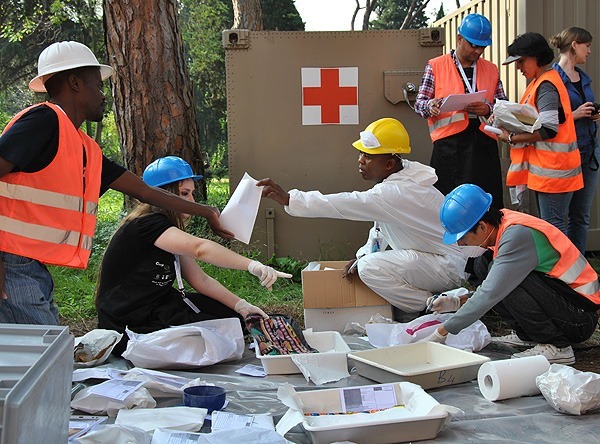
 What would be the first thing you do when planning your holiday? And yes, after booking your flight and hotel!
What would be the first thing you do when planning your holiday? And yes, after booking your flight and hotel!
You would probably read about the people you will be interacting with while you are there. This includes knowing the culture, customs, history and political situation.
Unfortunately, some humanitarian organisations, mainstream media and donor countries have been accused of not fully considering and respecting the historical, religious and socio-political contexts of the affected community, to the detriment of everyone.
This highlights that an important role in humanitarian assistance is cultural sensitivity.
Bora Kang and Joel Lindsay state in an article that ‘’culture’’ is a ‘’system of meaning, norms of behaviors, and power relations ’’ . Hence, cultural sensitivity is the ability to be aware of, understand and respect these aspects of culture. Cultural sensitivity rejects assumptions.
Whether you are a volunteer, who is planning to go to Lebanon in order to help Syrian children, a director of an organisation or a donor, you are advised not to come with the assumption that everyone will be excited because you are coming to help. Definitely, they will appreciate you being there but if you have zero cultural awareness and understanding of the local community then all your efforts will be in vain.
During a crisis, humanitarian actors usually encounter agitated, helpless beneficiaries and communities who feel their lives are in limbo and probably these humanitarian organisations are their last resort for help. In situations like these, we do not want the organisations’ intentions to be jeopardized due to lack of cultural awareness and sensitivity. For example, after the 2004 tsunami in Indonesia, some commentators have alleged that the focus of some donor countries’ aid allocations was politically driven without consideration of the recipients’ needs. Such situations will only create discontent and hostility towards humanitarian aid workers.
To guard against this, Mrs. Thoraya A. Obaid, the former Executive Director at United Nations Population Fund (UNFPA), considers that the involvement of the affected community in the early stages of planning a humanitarian response could contribute to mitigating risks and avoid incidents of cultural misunderstanding and confusion. In her view, Mrs. Obaid believes that acts like these will allow communities to feel they have an ownership of the relief programs because their thoughts and ideas were taken into consideration.
Culture is constantly changing and transforming, therefore, a culturally embedded humanitarian response must be observed and taken into consideration. This means that all those involved in humanitarian work should communicate with and understand the local community’s culture from the early stages of intervention.
Notes :
Organizational Culture by Edgar H. Schein 1990
Thoraya A. Obaid, UNFPA former Executive Director stated that, "The challenge for UNFPA is to help countries as we always have with no agenda of our own; with sensitivity towards unique cultural values; with an infinite willingness to work with whatever is positive; and with a determination to help countries and people turn universal principles into concrete action." - See more at: http://www.unfpa.org/resources/quotes-culture-and-culturally-sensitive-approaches#sthash.dqdUE2cQ.dpuf
Addressing the cultural gap between humanitarian assistance and local responses to risk through a place-based approach http://ow.ly/xO4Y3087hi2
Communicating with Communities (CwC) http://ow.ly/qVgH308iCYG
Photo credit : http://www.iccrom.org
There are two types of holiday. In many cases, people (not just Westerners....) go to enjoy the weather or some other such advantages of locations away from home, but refuse totally to understand or even display the slightest interest in the local population.
But for humanitarians this is so much more crucial, because engaging in the local community are the minimum criteria not just for the success of the mission, but for the safety of those engaged in humanitarian relief.
Although this topic is stil widely discussed and requested to be observed in the humanitarian field, we keep witnessing several incidents that jeopardize humanitarian aid due to lack of cultural sensitivity.